THE MASTER: P.T. Anderson’s Enigma of a Man Decoded
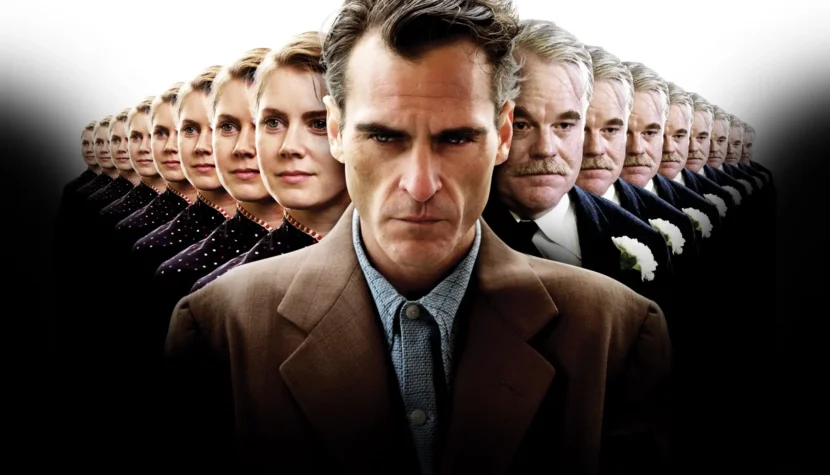
But this has its upsides. Without a doubt, the viewer feels that they are not being fed something made in haste; they feel appreciated when they receive a film that is visually and narratively polished in every aspect. This is how a recognizable brand is created, and Anderson’s name has undoubtedly become one.
One of them is Freddie Quell. Left to his own devices along with his war-induced nightmares, which he tries to drown out with alcohol, Freddie cannot find his place in ordinary life. Everything he touches falls apart—due to his outbursts of aggression and constant drunken binges, he keeps losing jobs. He is a lost man, unfit for life, dehumanized by the war, and enslaved by addiction. Freddie desperately seeks closeness, understanding, and, above all, solace for his restless soul. In his search, he seems so desperate that he is willing to trust something he doesn’t fully understand. And at this moment, a glimmer of hope appears—someone extends a helping hand. That someone is Lancaster Dodd, the founder of a scientifically-religious organization called The Cause.
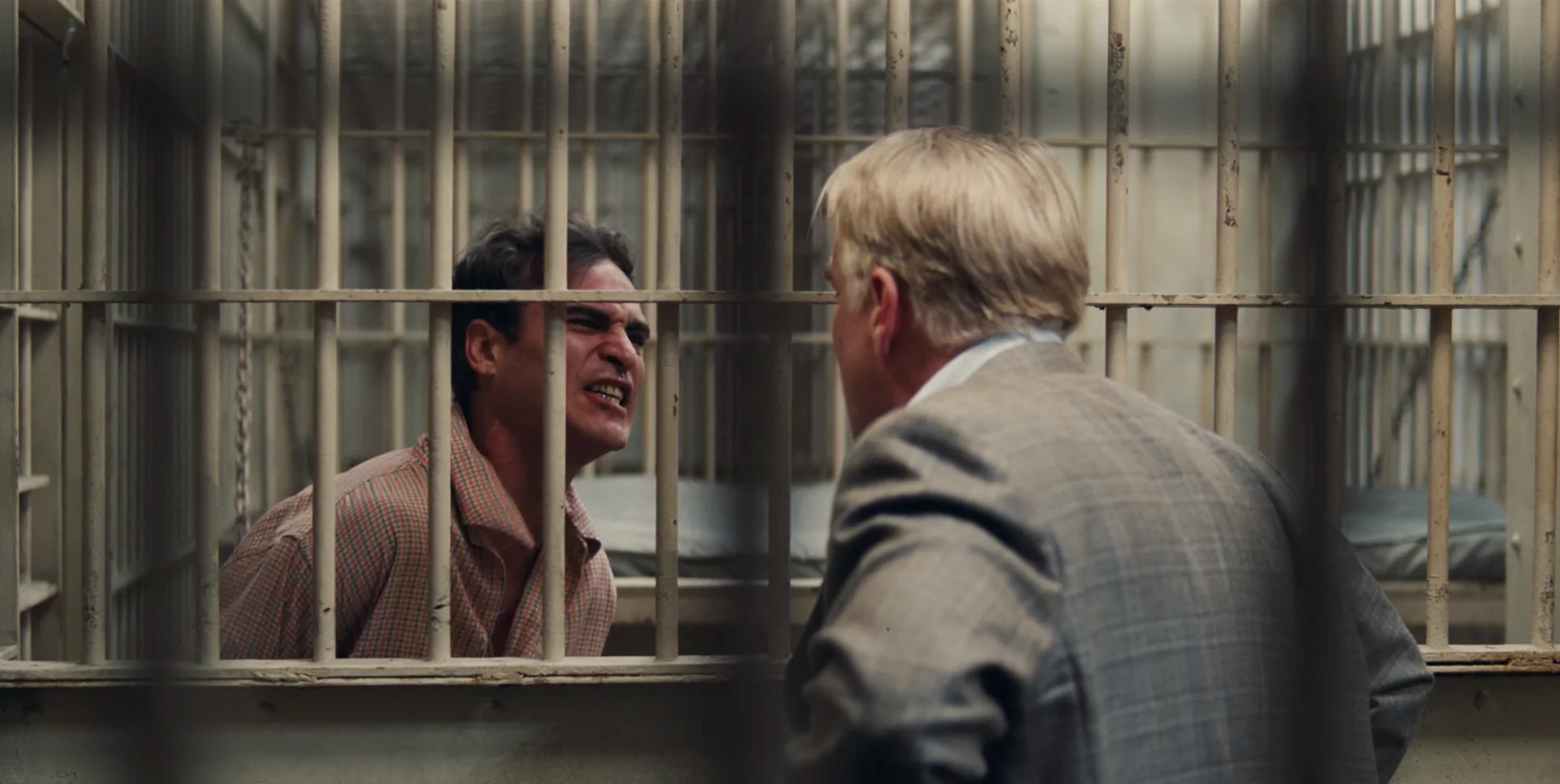
Freddie meets his Master just in time. Any later, and he might have hit rock bottom, drowning in his alcohol-induced stupor. Despite initial distrust and the absurdity of the whole The Cause affair, which he doesn’t fully comprehend, he simply goes along with it. He is so eager to grasp this elusive thread of connection, to believe in the illusion of familial warmth or simply in his own usefulness and sense of belonging, that he overlooks the brainwashing Dodd subjects him to in his “tests and exercises.” Loneliness and the war have twisted him to the point where he assumes the role of a kind of guinea pig. Yet, this dubious therapy stimulates him. Freddie opens up to the Master, and although he cannot name it, he also begins to open up to himself, externalizing his sensitivity and starting to express his emotions. And here, a kind of fascination develops between him and the Master, although each is fascinated by something different.
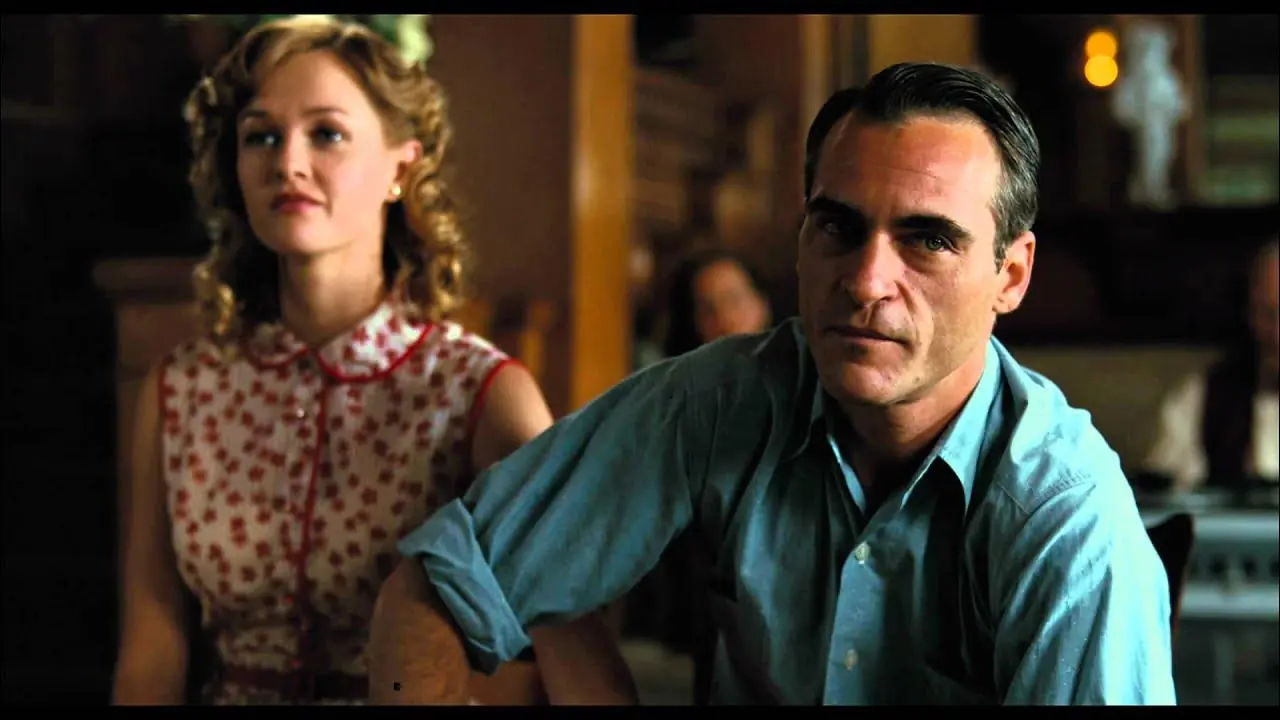
Freddie is captivated by what he doesn’t really understand. He doesn’t grasp the words Lancaster says, but the effect they have on him brings him solace. Moreover, Dodd appears to him as a successful man, with a vision of his own image, capable of creating an illusion of authority and an aura of mystery that hypnotizes and attracts. His charisma enables him to win people over, making them believe every word he says, even if it raises doubts. And this is likely what fascinates Freddie. On the other hand, what draws Dodd to Freddie is his individuality. Quell represents a different type of person, someone Dodd has never encountered before and doesn’t fully understand. Freddie embodies an animalistic nature and wild freedom, which Dodd’s teachings deny. He is independent, capable of breaking all rules, enjoying simple pleasures, and following his instincts rather than suppressing them. For Lancaster, Freddie is the perfect research subject, a blank slate on which to rewrite everything anew.
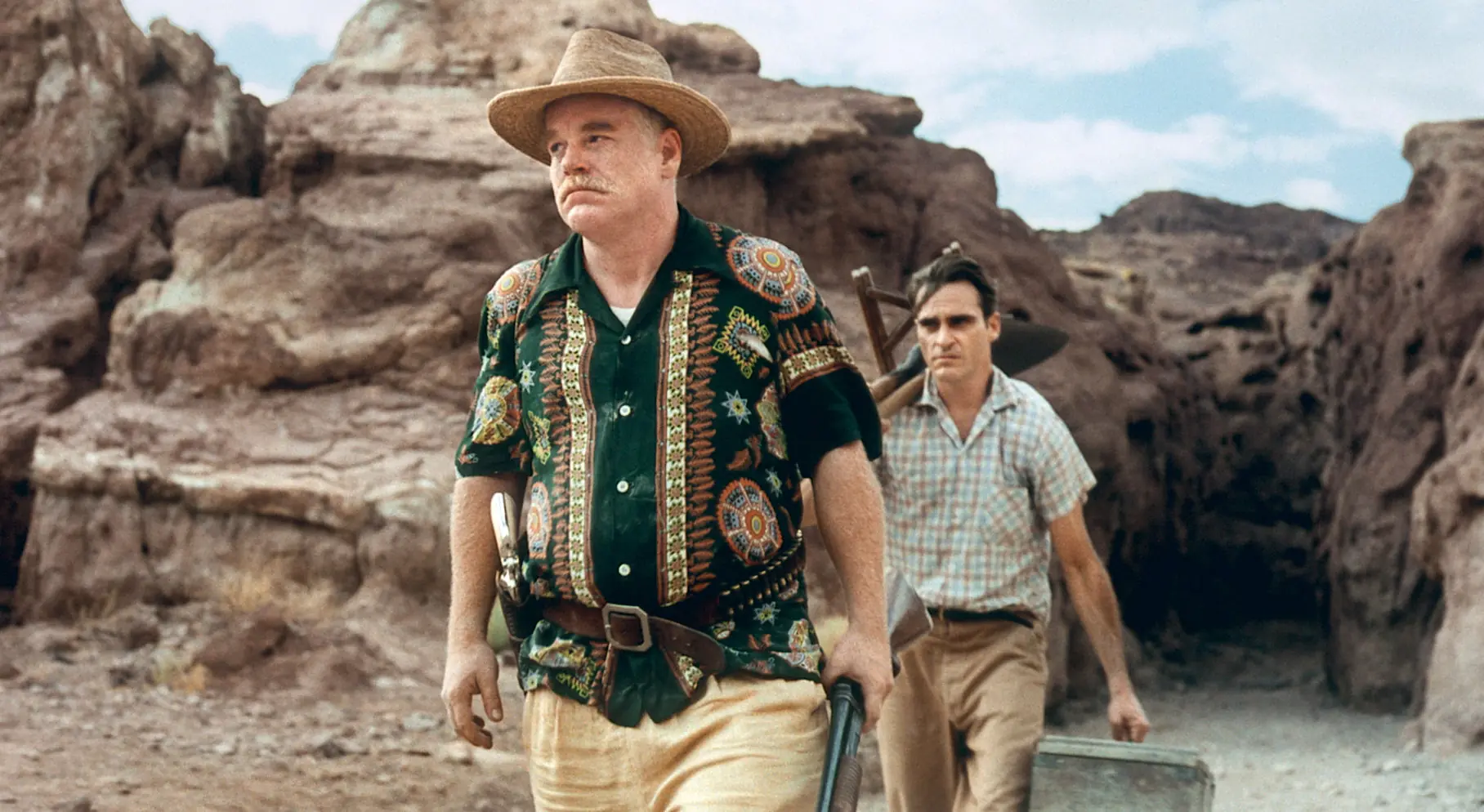
And here is where cracks begin to appear in their relationship. Their fascination is based on a misunderstanding that is bound to surface eventually. These are two different worlds that met by chance and, instead of stopping, should have continued on their separate orbits. Moreover, the deeper Freddie delves into himself, the more he engages with The Cause, the more questions and doubts arise in his mind. He begins to see the validity of the criticism directed at Dodd, which he himself reacts to aggressively. He notices that his Master is not entirely respected, especially by his son, who appears to Freddie as a duplicitous figure. And, most importantly, the Master begins to appear as a giant with feet of clay, a perfect image that starts to show cracks. The more Dodd tries to open Freddie’s eyes to his truths, the more he opens them to his own flaws, his helplessness in the face of criticism directed at him. He exposes his weakness. We don’t see this clearly—Anderson doesn’t lay everything out for us, doesn’t draw anything in bold strokes. Everything is based on subtle nuances that play out between Dodd and Freddie and in the decisions the characters make. There is no gradual buildup of tension here, like in Magnolia, where the tension practically exploded, leading the viewer to a grand finale. Here, the countdown to the most important moment in the film happens in whispers. However, we won’t see a rain of frogs or a bloodbath here. Catharsis comes quietly, almost shyly.
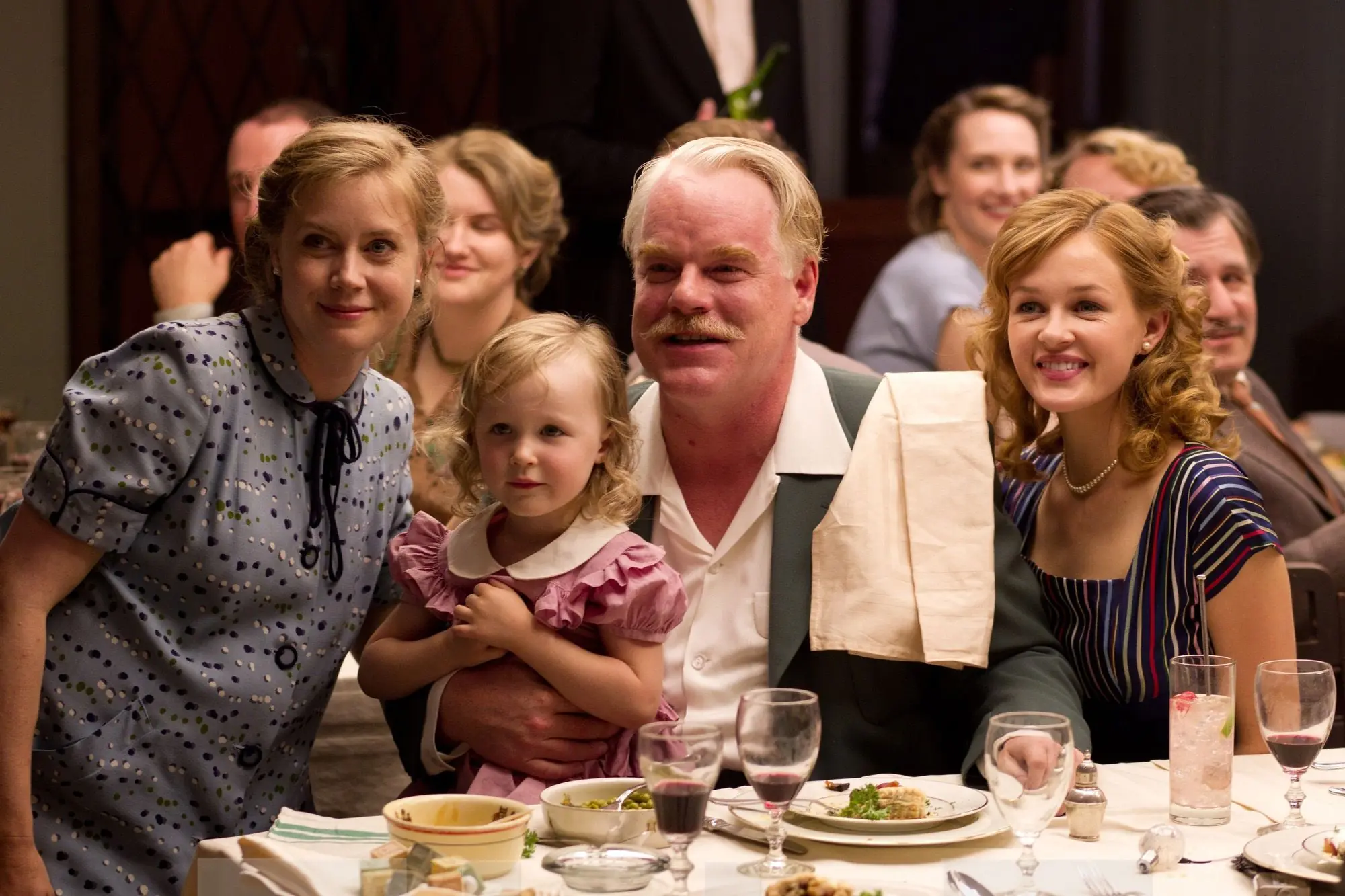
At the climax, during another “exercise,” Freddie simply gets on a motorcycle and rides away. Just that, and yet so much more. Independence wins. And in the aftermath of this event, the Master once again reveals his weakness. At their next meeting, this great visionary admits that he needs Quell and that, in a way, Freddie is his master. Moreover, he fears their separation to the point that if Freddie leaves, he doesn’t want to see him again. Dodd envies Freddie’s freedom and needs to feel that independence, even if only through his presence. He also craves the sense of power he thought he had over Freddie, as evidenced in the final scene when Freddie lies with a naked woman, asking her the same questions the Master once asked him, parodying his “process.” This shows that he no longer needs Dodd, that he has freed himself from Lancaster’s influence, but it also testifies to the lasting impact this relationship has had on him and that, in a sense, he will never forget it.
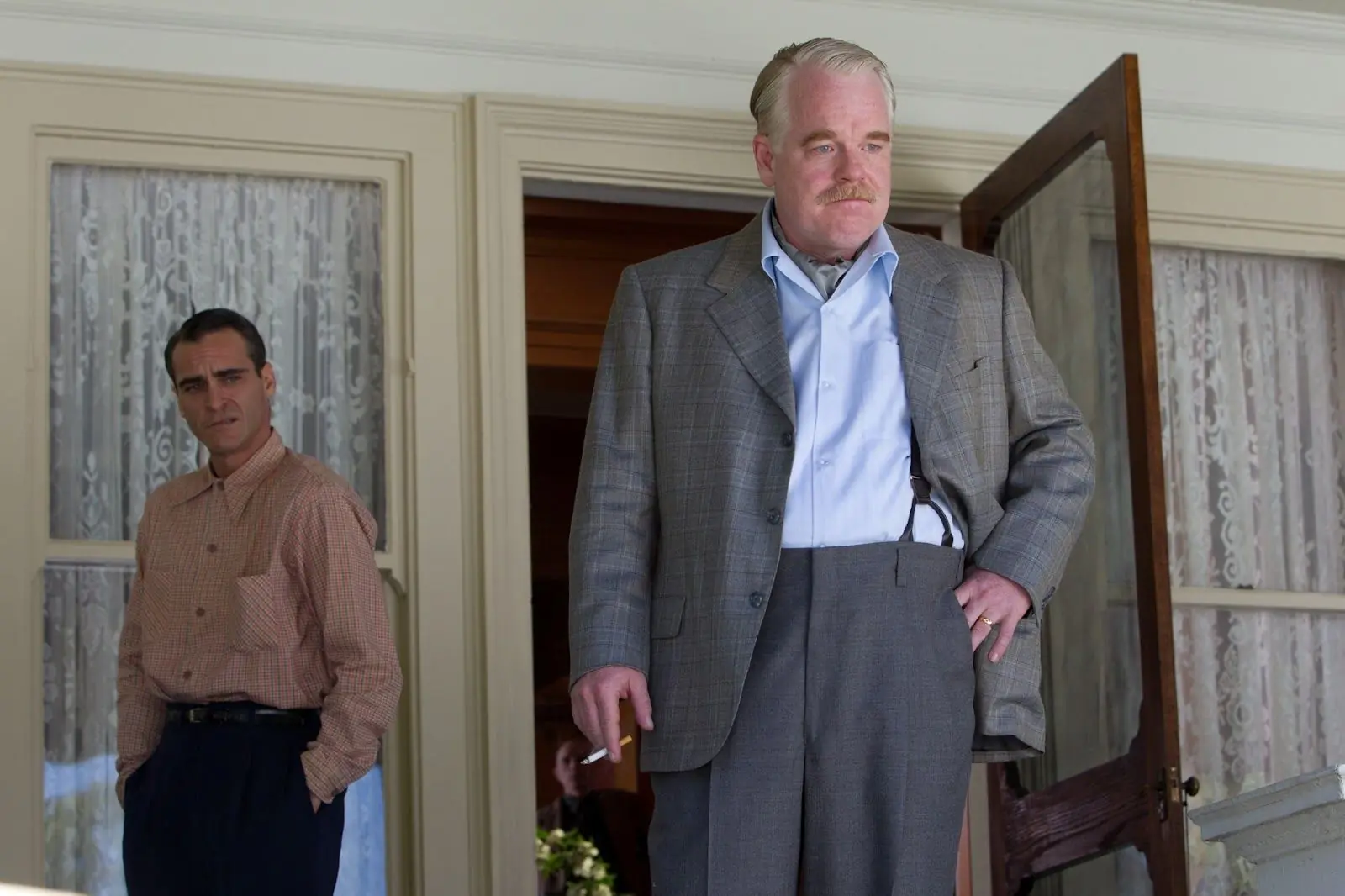
Paul Thomas Anderson suggests something similar in interviews: They go through a lot together, but they start and end the same way. Perhaps that’s what this film is about—the struggle with life, both one’s own and someone else’s, with all its problems. Despite the hope, it ultimately leads to no resolution. Unfortunately, people are capable of ending any relationship in a cloud of unspoken words or misunderstandings. Just like that, without any explanation. Simply because we subconsciously feel that something is off or that something has burned out. And this happens even if we think that this relationship will undoubtedly change our lives, that it will be the one that lasts forever. And in this way, our relationships with others ultimately lead to nothing. Is this what the director wanted to tell us? Did Freddie feel that something was off, or did his fascination simply fade? Or perhaps much deeper emotions are at play here. Maybe this is where the love story Anderson hinted at comes into play?
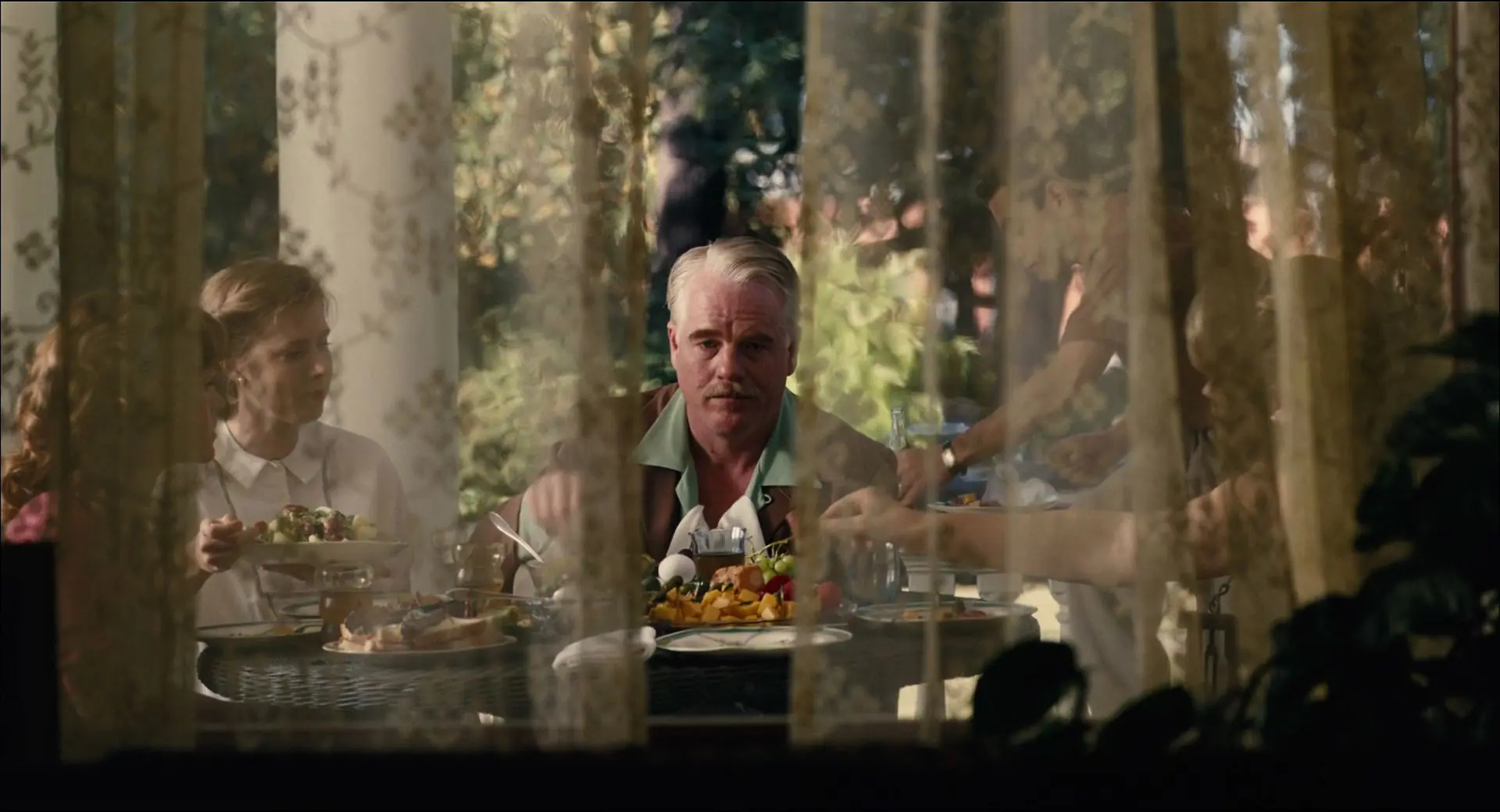
And what about this love story? Instead of searching for homosexual undertones, I would rather see it as a complex relationship between God and man. Why do I mention this in the context of love? Because Christianity is fundamentally based on love—love for one’s neighbor, but also love for God, who is also called Love. God is love: whoever lives in love lives in God, and God in them (1 John 4:16b). The idea that God is love expresses the deepest essence of who God is and what He is like—this is what the Church teaches us, right? Love is not just a characteristic of God: God doesn’t just love; He is love. Love originates from Him, from His very essence. At this point, many might smile condescendingly, but let’s try for a moment to detach ourselves from the scientology nonsense and imagine that the face of Philip Seymour Hoffman is the face of God, whom the lost Joaquin Phoenix encounters.
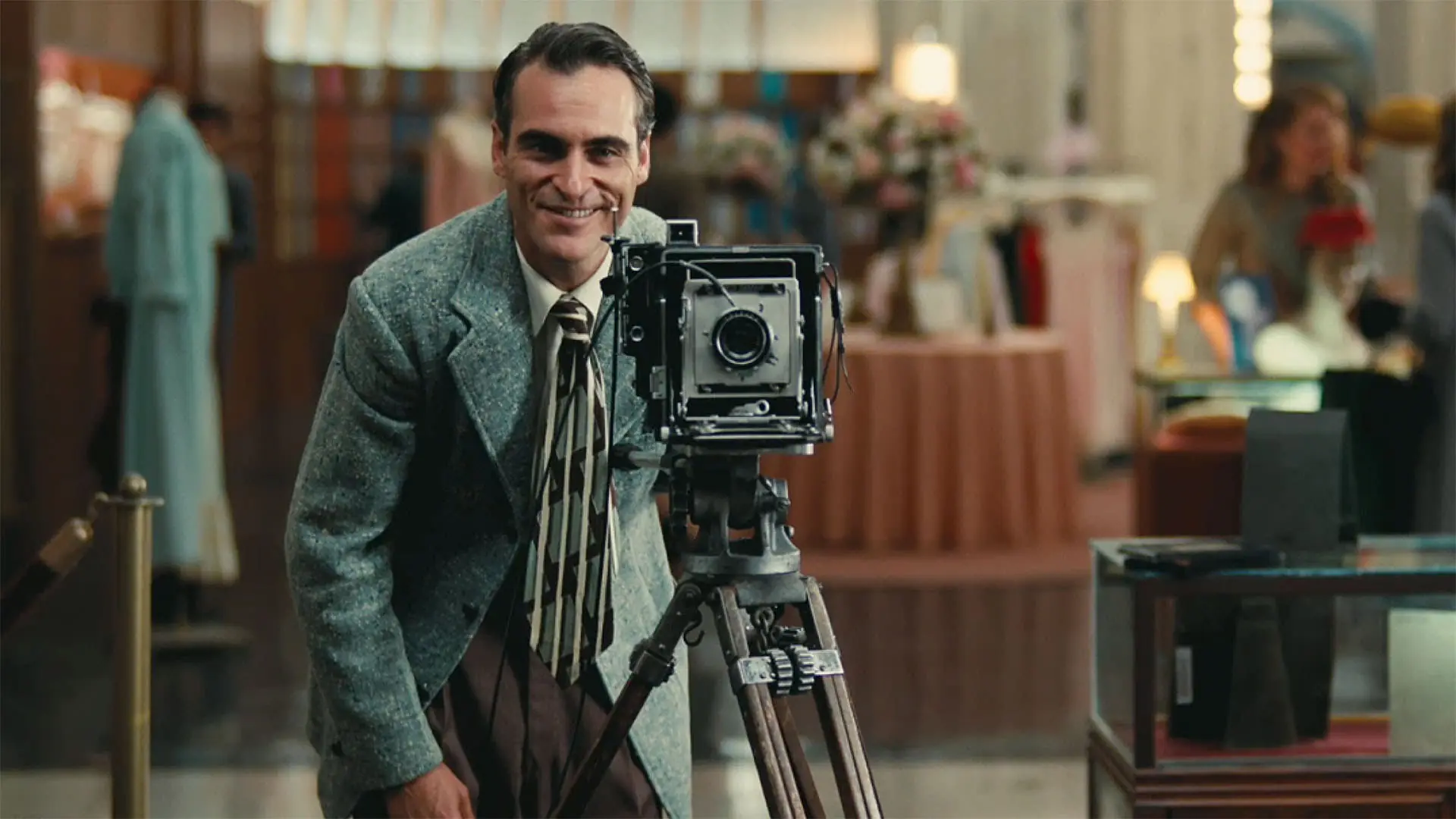
As crazy as it sounds, Anderson’s film is, in a sense, an attempt to examine the condition of a believer, more specifically, someone searching for their faith. In the character of Freddie, we can see a person living without God, but consumed by emptiness and the lack of meaning in their existence. Such a person seeks God, wants to believe in something, but when they finally find Him, they cannot fully surrender or trust. Yet there are always difficulties, doubts, questions that can’t be answered, dogmas that can’t be questioned, and certainly no dialogue can be initiated about them. Suddenly, faith becomes a limitation of freedom. Certain things are forbidden because they are written in the commandments. Because love for God requires complete devotion, trust, and submission to something incomprehensible; it requires the unquestioning acceptance of teachings and commandments that are supposedly for our salvation. This is why a person’s love for God is never perfect because they must believe in something promised to them, something that is uncertain, and undoubtedly incomprehensible. In fact, the Bible even states that humans are not capable of such love. And often, people distance themselves from God, not realizing that He will always, in some way, remain present in their lives. This is exactly what happens with the film’s Freddie, who seeks his place, understanding, and finds it in the person of Lancaster Dodd. He accepts Dodd’s teachings, although he doesn’t fully grasp his words. He tries to trust him, as Dodd promises him relief from his troubles. However, Freddie begins to doubt, to feel constrained, because he feels like a puppet on strings, being told to walk from wall to wall. He rebels and ultimately turns away and escapes from his Master, all the while being aware that, in some way, Dodd’s teachings—or perhaps even Dodd himself—will always be present in his life.
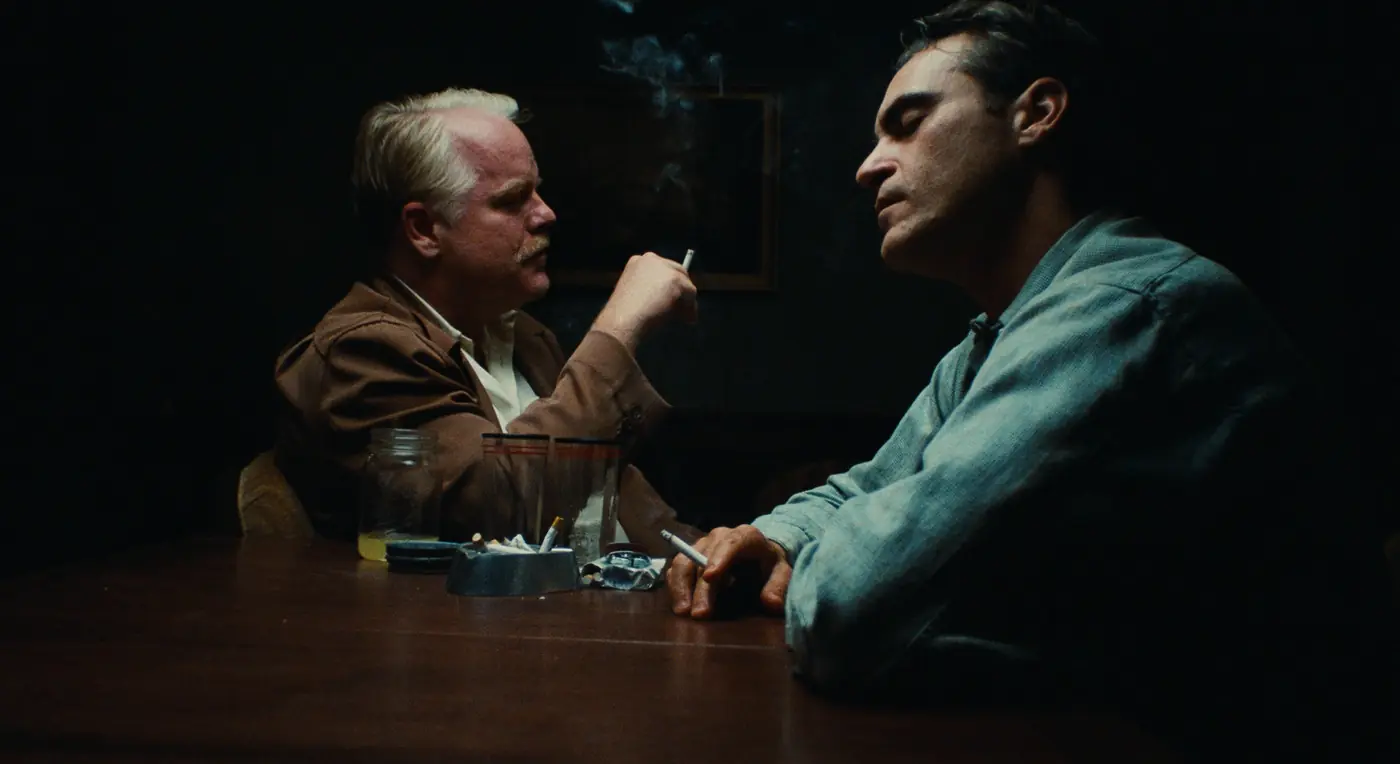
The Master is undoubtedly one of Paul Thomas Anderson’s most challenging films. It certainly contains elements reminiscent of Stanley Kubrick’s cinema (I would point to the effortless sense of humor, bitter and requiring understanding), but also a certain kind of enigma that reminds me of Terrence Malick’s films, and perhaps even Andrei Tarkovsky. The above interpretation is, as I suspect, just one of many possible ones. Perhaps someone else has noticed something more in this work? This is not a closed text. Here, everyone can add something of their own, their own interpretation. Or perhaps I’m overthinking all of this. Maybe it’s because I’m blindly devoted to my Master of and am desperately searching for any interpretation. Even if that’s the case, it’s worth it. The name of the creator of the brilliant Magnolia or There Will Be Blood certainly guarantees cinema of the highest level. For me, The Master is one of his most important films, and I didn’t even need to write about it. Anderson is simply my Master. And this film is simply a masterpiece.
Written by Andrzej Brzezinski

